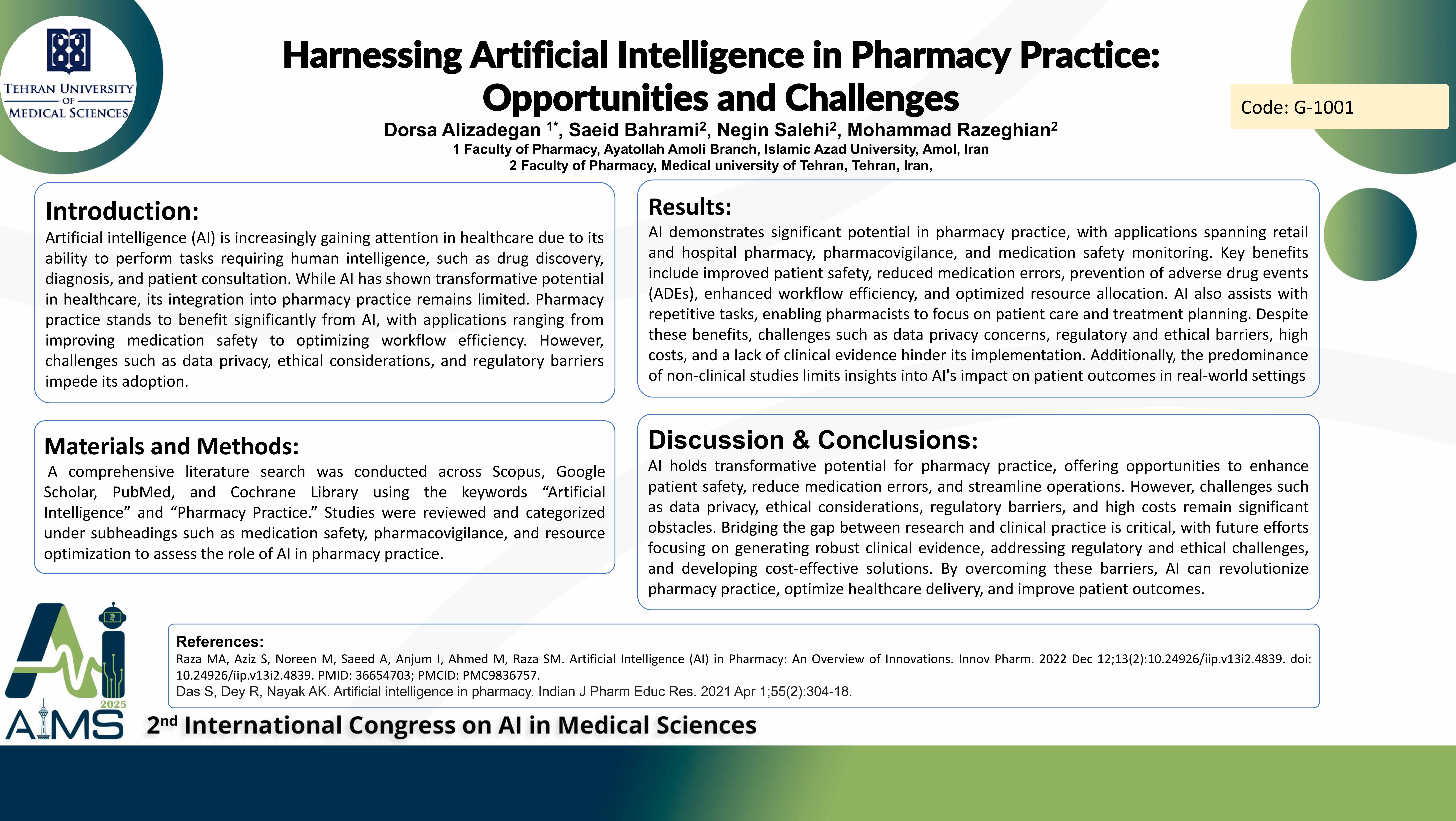Harnessing Artificial Intelligence in Pharmacy Practice: Opportunities and Challenges
Code: G-1239
Authors: Dorsa Alizadegan * ℗, Saeid Bahrami, Negin Salehi, Mohammad Razeghian
Schedule: Not Scheduled!
Tag: Drug Discovery
Download: Download Poster
Abstract:
Abstract
Introduction: Artificial intelligence (AI) is increasingly gaining attention in healthcare due to its ability to perform tasks requiring human intelligence, such as drug discovery, diagnosis, and patient consultation. While AI has shown transformative potential in healthcare, its integration into pharmacy practice remains limited. Pharmacy practice stands to benefit significantly from AI, with applications ranging from improving medication safety to optimizing workflow efficiency. However, challenges such as data privacy, ethical considerations, and regulatory barriers impede its adoption. This review explores AI's diverse applications in pharmacy practice, its potential to enhance efficiency and patient care, and strategies to address barriers to implementation. Materials and Methods: A comprehensive literature search was conducted across Scopus, Google Scholar, PubMed, and Cochrane Library using the keywords “Artificial Intelligence” and “Pharmacy Practice.” Studies were reviewed and categorized under subheadings such as medication safety, pharmacovigilance, and resource optimization to assess the role of AI in pharmacy practice. Results: AI demonstrates significant potential in pharmacy practice, with applications spanning retail and hospital pharmacy, pharmacovigilance, and medication safety monitoring. Key benefits include improved patient safety, reduced medication errors, prevention of adverse drug events (ADEs), enhanced workflow efficiency, and optimized resource allocation. AI also assists with repetitive tasks, enabling pharmacists to focus on patient care and treatment planning. Despite these benefits, challenges such as data privacy concerns, regulatory and ethical barriers, high costs, and a lack of clinical evidence hinder its implementation. Additionally, the predominance of non-clinical studies limits insights into AI's impact on patient outcomes in real-world settings. Discussion and Conclusion: AI holds transformative potential for pharmacy practice, offering opportunities to enhance patient safety, reduce medication errors, and streamline operations. However, challenges such as data privacy, ethical considerations, regulatory barriers, and high costs remain significant obstacles. Bridging the gap between research and clinical practice is critical, with future efforts focusing on generating robust clinical evidence, addressing regulatory and ethical challenges, and developing cost-effective solutions. By overcoming these barriers, AI can revolutionize pharmacy practice, optimize healthcare delivery, and improve patient outcomes.
Keywords
Artificial Intelligence, Pharmacy Practice, Medication Safety,
